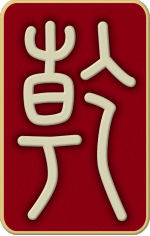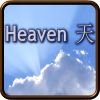
乾 Qián Beginning (Initiating) [hexagram 1]

 Metal element
Metal element
Lunar month: 4 ; Host (controlling) line : 5
The Decision
Beginning signifies what is great and inexhaustible, steadfast and upright.
Limitless is the power of ‘beginning’. It is the source of all things under Heaven. Clouds scurry and rain falls directing the growth of all things. The wise understand the end, the beginning and all six stages at their due time – mounting the six dragons to master the heavens. By way of ‘beginning’ all things transform to fulfill their true nature and achieve harmony. The outcome is advantageous, steadfast and upright. Leaders emerge above the masses and all countries unite in peace. NOTE: The first hexagram of the Yi Jing has received far more commentary and interest than the other guas. At first reading it seems to be about a dragon. In fact it is all about the changing seasons because it concerns the celestial dragon 苍龙 cāng lóng and its movement across the sky representing the seasons. It was later taken to represent the actions of the accomplished or virtuous person.
乾: 元亨,利贞 Qián: yuán hēng, lì zhēn
彖传: 大哉乾元,万物资始,乃统天. 云行雨施,品物流形. 大明始终,六位时成,时乘六龙以御天. 乾道变化,各正性命,保合大和,乃利贞. 首出庶物,万国咸宁. Tuàn zhuàn: Dà zāi qián yuán, wàn wù zī shǐ, nǎi tǒng tiān. Yún háng yǔ shī, pǐn wù liú xíng. Dà míng shǐ zhōng, liù wèi shí chéng, shí chéng liù lóng yǐ yù tiān. Qián dào biàn huà, gè zhēng xìng mìng, bǎo gě dà hé, nǎi lì zhēn. Shǒu chū shù wù, wàn guó xián níng.
The Image
Heaven represents strength; the wise therefore keep themselves ceaselessly busy.
象传: 天行健,君子以自强不息. Xiàng zhuàn: Tiān háng jiàn, jūn zǐ yǐ zì qiáng bù xī.
Line Change 1
Skulking dragon – not useful. An inappropriate time from action.
‘Skulking dragon – not useful. An inappropriate time from action’ – the strength is far below.
初九: 潜龙,勿用. Chū jiǔ: qián lóng, wù yòng.
潜龙勿用, 阳在下也 Xiàng zhuàn: Qián lóng wù yòng, yáng zài xià yě
Line Change 2
Dragon found in the field. Rewarding to meet the great.
‘Dragon found in the field’ – benefitting from a virtuous influence.
九二: 见龙在田, 利见大人 Jiǔ èr: jiàn lóng zài tián, lì jiàn dà ren
象传: 见龙在田,德施普也 Xiàng zhuàn: Jiàn lóng zài tián, dé shī pǔ yě
Line Change 3
All day long the wise are creative and vigilant, at night careful and wary. There is danger but no blame.
‘All day long creative and vigilant’ – following the true way every time.
九三君子终日乾乾, 夕惕若, 厉, 无咎 Jiǔ sān jūn zǐ zhōng rì qián qián, xī tì ruò, lì, wú jiù
象传: 终日乾乾,反复道也 Xiàng zhuàn: Zhōng rì qián qián, fǎn fù dào yě
Line Change 4
Wavering on the edge of the abyss. No mistake.
‘Wavering on the edge of the abyss’ – OK to make progress.
九四: 或跃在渊, 无咎. Jiǔ sì: Huò yuè zài yuān, wú jiù.
象传: 或跃在渊,进无咎也 Xiàng zhuàn: Huò yuè zài yuān, jìn wú jiù yě
Line Change 5
Dragon in flight. Favorable to meet the great.
‘Dragon in flight’ – the great set about their work.
九五:飞龙在天,利见大人 Jiǔ wǔ: Fēi lóng zài tiān, lì jiàn dà ren
象传: 飞龙在天,大人造也 Xiàng zhuàn: Fēi lóng zài tiān, dà ren zào yě
Line Change 6
Arrogant dragon, there will be cause for regret.
‘Arrogant dragon, there will be cause for regret.’ – lack of restraint should only be brief.
上九:亢龙有悔 Shǎng jiǔ: Kàng lóng yǒu huǐ
象传: 亢龙有悔, 盈不可久也 Xiàng zhuàn: Kàng lóng yǒu huǐ, yíng bù kě jiǔ yě
A host of dragons appear without a leader. Good fortune.
Heaven’s way does not concern itself with who happens to be the leader.
用九见群龙无首, 吉 Yòng jiǔ jiàn qún lóng wú shǒu, jí
象传: 用九, 天德不可为首也 Xiàng zhuàn: Yòng jiǔ, tiān dé bù kě wéi shǒu yě
The full set of 64 English translations is available in our new book 'Book of Changes - Deciphered' ➚.